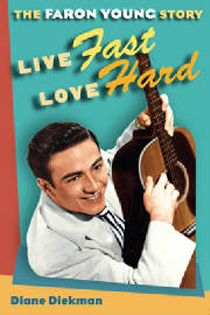One of the most endearing and perhaps the greatest strength of fiction writer Ann Hite's Black Mountain series is the authentic voices that Ann has given to her characters and narrator. They are so real it is as if they are standing right in front of you. I wanted to shake their hands upon introduction.
As Elizabeth Berg says, "The people who are the most irresistible are those who are most themselves."
We can actually 'feel' when they are not being themselves -- in real life and even on the page. You've met people who made you antsy, made you feel as if you are both sharing a secret and you've just met them. The secret of course is that you both know this person is not what he or she appears to be, or tries to appear to be. Of course this cover-up can make for an interesting plot development as the reader sees their 'persona' slip and eventually the character reveals his true colors.
But if this is not a plot device, then reader and character are both uncomfortable in this shared lie.
Berg says the best thing to do is to write naturally. "Using your own voice, try to think of what you are doing as dictation. Put down onto the paper the words you are hearing in your head -- literally."
For me that means writing in first person. When I begin saying 'he said, she said, and describing scenes with an omniscent voice, the distant widens to a deep chasm dividing me not only from the characters, but from the reader. I even feel isolated and removed from the scene.
Today I rewrote a scene, not a bad scene, but a ho-hum scene from a first person perspective. I chose one of the women in the room as my eyes and ears and let her tell what happened. It surprised me at how stilted some of the descriptions sounded now that I saw the scene through her eyes.
So first step in finding your authentic voice, is finding your narrator. As soon as I could 'see' my narrator, I could put perception, focus, and personality into the scene. It still isn't good.
Now I have fallen into the trap of reportage.
Trust me, anyone who has reviewed very many manuscripts or reviewed books whose authors have paid for the service are familiar with the amateur mistakes. The glaring amateur mistakes. Not so easy to spot is how the writer overcomes this awkward writing. But, just like authenticity, you know it when you see it and can relax and enjoy. Trust builds with an author who writes with 'authority' and 'authenticity.' Maybe that's why we're called: AU-thors!
Writing this bloggy advice, I see that it appears to be leading writers to an attitude of 'be more concerned with each word you write and be careful of reportage and stilted writings and to scrutinize each word placed on the page.'
NOOOOO!
Just the opposite.
Set the editor aside. Forget what everyone has told you about writing and for this first draft, this first romance with the page, just let the words flow. What I do advocate is getting to know your character so well that she speaks through you. As Berg said, "... dictation."
That is my mistake. I sit at my desk looking in through the window at my characters. I can't hear them very well from out here. My focus is distorted by the thick layers of glass between us. I can't use any other senses. I don't smell their perfume or musky odors or bad breath or the scent of the room. I can't taste Alma's homemade cookies or Rita's cherry jam. I need to open the door and move inside. Smile at the room full of women and see how they respond to me.
Getting to know characters may involve writing a long detailed history. Not only the parents' names, but the grandparents, where they were born, raised and which wars they fought in -- personal and militarily. It also means that you know if they are right or left handed, what their birthstone is and if they like having that birthstone. What scars do they have? Inside and out? What makes them stop and admire? Who attracts and repels them?
This also requires putting the editor out with the morning trash. Do NOT. DO NOT invite that editor back in until the first draft is completely written. Send that editor on a trip around the world. And while she's gone write. Write as fast as you can. And while you're writing visit with your characters. Get to know whether they prefer cherry jam to ham sandwiches or what their smile looks like. Get to know who is shy, who is bold, who is angry, who is frightened, who is carrying a heavy burden, keeping a secret, and who is just so happy they could sing.
It isn't only journalists who should be asking who, what, where, when, and why. Every writer, especially fiction writers need to ask. And don't forget how.
Diana Gabaldon (you knew I'd have to insert her in here some way) likes to tell the story of driving her daughter to soccer practice and all the time her mind was on her characters. She sees Jocasta reach for a cut glass goblet and watch her man servant push the glass just an inch so that her fingers close around the glass precisely. It is at that point that Gabaldon has the epiphany that 'Jocasta is blind!' and misses the turn off to soccer practice. Even in her anecdotes about her writing, Gabaldon has great timing and understatement. I admit that some of that was lacking in her latest book -- along with alot of other things I found endearing about her Outlander series. But I digress.
For me, at this moment, writing in first person works. Even if the final version moves back to third person, I will get to know my characters, remove stitled descriptions, and get rid of the barriers between me and the action through my narrator who is now my best bud!
12 Essential Gear Items for Travelers Who Run on Vacation
57 minutes ago
























1 comment:
Wow! I am honored my friend.
Post a Comment